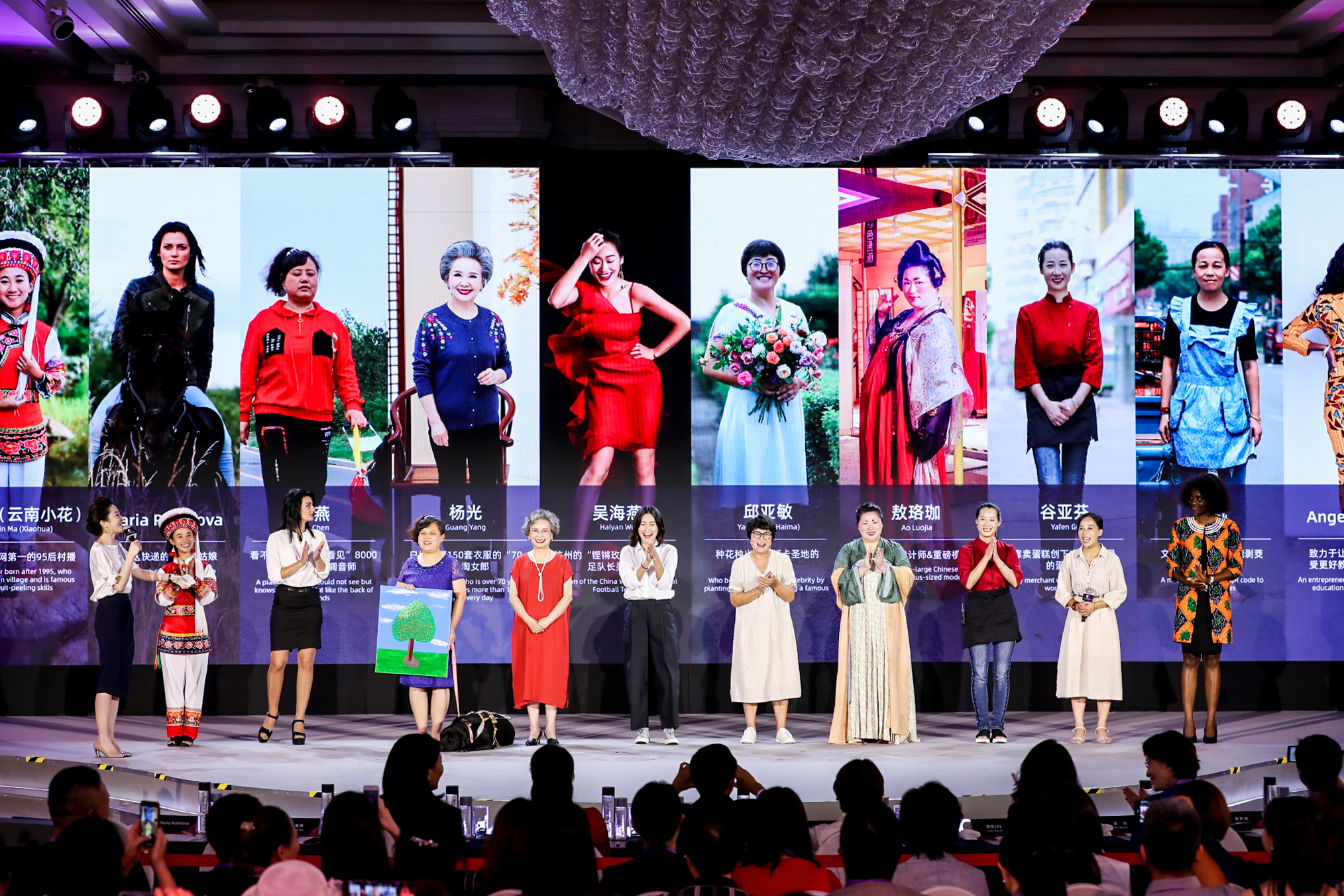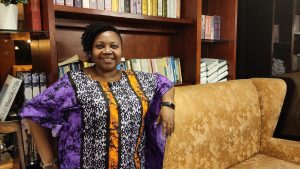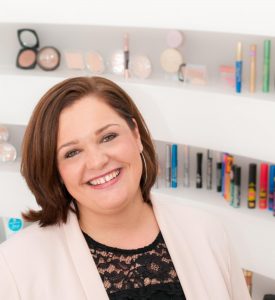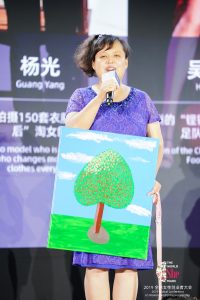
Women entrepreneurship continues to be on the rise globally, despite existing gender-related cultural biases that can be roadblocks impeding women from advancing in the workplace, according to a Mastercard study published in 2018.
In 2016 alone, there were an estimated 163 million new businesses started by women. Between 2014 and 2016, there was a 10% increase in women’s total entrepreneurial activity, and the gender gap shrank by 5% in the same time period, the study shows.
Such statistics show that women are making headway in the global economy. But it also highlights that more can be done to ensure a greater number of girls and women have equal access to the job market. Empowering entrepreneurs, regardless of gender, lies at the core of the Alibaba’s mission. Alibaba Group founder and Executive Chairman Jack Ma has said women are the “secret sauce” of this company’s success. Currently, one-third of the partners who make key decisions for Alibaba are women, and nearly half of the stores on Alibaba’s online marketplaces are run or owned by a female.
To recognize and pay tribute to women entrepreneurs everywhere, Alibaba holds a Global Conference on Women and Entrepreneurship every two years. We collected the stories of three female entrepreneurs whose partnership with Alibaba has helped them find success. These women, in Germany, Nigeria and China, are here to share their journeys, explaining how they overcame challenges and offering advice for aspiring female business leaders.
From Peanut to Platform

Growing up in Nigeria, Uju Uzo-Ojinnaka saw peanuts, or ground nuts, as they are called in Africa, everywhere. They were sold in the wet markets, by hawkers on the streets and often served as snacks at gatherings. After all, Nigeria is the biggest peanut producer on the African continent.
So, imagine her surprise and frustration in early 2017, when she was not able to find a big enough peanut supplier in her country when a buyer in India wanted to purchase a container full.
“I remember that night, I couldn’t sleep because I keep thinking how I lost out on that business. I was also frustrated because I know there are buyers who couldn’t find sellers and sellers who couldn’t find buyers,” she said. Moreover, she thoughts if she, a native Nigerian, couldn’t find a way to secure local Nigeria products, how much more difficult it must be for foreigners who are looking for Nigerian products. .
Such frustration, she said, reminded her of Jack Ma’s utter dismay when he visited the U.S. in 1995 and couldn’t find any information about Chinese beer when he searched on the internet. She remembered Ma’s frustration fueled his ambition to create an online platform in China to make it easier for buyers and sellers to be connected. That nascent thought later morphed into Alibaba Group, now the largest e-commerce operator in the world.
“I thought to myself, ‘Jack felt the frustration and he did something about it. I also need to do something about it. Not just for me, but for my country, for Africa!'” she said, noting Ma is her role model and inspiration.
Such impetus to “do something about it” gave Uzo-Ojinnaka the urgency and the determination to start Traders of Africa (TOFA) in June 2017, now one of the most prolific online B2B shopping platforms in Africa. What started out as an attempt to sell peanut has become what Uzo-Ojinnaka calls “the Alibaba of Africa,” a pan-African platform that hosts 15,000 suppliers from 15 countries.
To learn more about e-commerce in China, Uzo-Ojinnaka recently enrolled in the Alibaba Business School’s “eFounders Fellowship” program in which participants were welcomed to Alibaba’s global headquarters in Hangzhou, China, to witness firsthand how the e-commerce transformed China’s consumption market.
As a wife and a mother of four children, Uzo-Ojinnaka said she has not encountered any workplace discrimination because she is a woman and emphasized that entrepreneurs should be judged by the values they bring and create for the society, not by their gender.
However, she does admit it requires lots of juggling to ensure both home and work are places of peace and joy.
“My advice to working mothers: Settle your home first. You won’t be happy at work if your home is in disarray. There are things and people that should not suffer because of your work,” she said, emphasizing that no amount of success can replace the failure in the home.

The Beauty of Self-Belief
Christina Oster-Daum has never been a quitter, but when she resigned from a steady job in 2001 to pursue her dream of selling high-quality, but affordable, beauty products, even her family wondered if she had made the right move.
“The biggest barriers were actually in the environment around me, as many people around me did not believe that there is a market for my idea,” said Oster-Daum, recalling the early days of her career as a budding entrepreneur.
Despite the second-guessing and doubts from those closest to her, Oster-Daum stuck to her guns and believed firmly that her plan would work.
“I was driven by the idea of creating a wonderful new brand and a company with a culture where people would love to work,” she said.
Entrepreneurship is not uncommon in Germany, where Oster-Daum and her chief marketing officer, Yvonne Wutzler, grew up. However, a 2018 report by the Organization for Economic Cooperation and Development noted women entrepreneurship there is still underrepresented.
Luckily for both, their gender has not impeded their pursuit to create Cosnova Beauty, a brand that has blossomed into a household name in Germany, and often linked with attributes such as “freedom, fun, joy.”
“I never felt any special challenges from being a female leader. Women dominate our industry, so being a woman business leader is not that unusual,” said Oster-Daum, the founder of Cosonova Beauty. She added that diversity of gender, background and age is the key to forming a winning company.
Over the last 18 years, with an unwavering commitment to quality, innovation and self-expression, Cosnova brands such as Essence and Catrice have etched out a global footprint, selling in over 80 markets, including China, where consumers are becoming more demanding for quality products at a reasonable price.
That trend has prompted many Chinese shoppers to gravitate toward reputatable names such as Cosnova. The brand quickly gained popularity and customer loyalty on Taobao, Alibaba’s marketplace mainly for individual merchants and small businesses.
Watching the brand’s fast growth pace on Taobao and recognizing Alibaba’s trustworthy reputation among the Chinese consumers gave the management the proofs and encouragement to take the next step – opening a flagship store on Tmall Global in April, Alibaba’s premium cross-border shopping site, said Yvonne Wutzler.
“Alibaba’s ecosystem makes the operation quite easy. Whether it¬¥s about the integration of logistics or the fulfilment via Cainiao [Alibaba’s smart logistic network], it really is a smooth set-up and facilitates a convenient handling for us,” she added.
For many international brands, a major advantage of partnering with Alibaba is the direct engagement with China consumers, which affords them a better understanding of their current and future demands. Wutzler pointed out Chinese shoppers not only want quality products, they also want to be informed.
“They have a very strong interest in educational content – their focus is on the knowledge about the right look and their passion for makeup routine,” she added.
While Cosnova sell beauty products, both leaders agree makeup is merely an enhancing tool, and true beauty, buttressed by self-confidence, empathy and humor, must radiate from within. The firm belief in one’s own dream is especially important for aspiring women entrepreneurs, they added.
“Believe in your dream and be flexible and open for whatever might come your way – not everything can be thought through,” said Wutzler.

Stay Tuned with Your Heart
Chen Yan has never seen a piano or the 8,000-plus components inside one piano, but fixing and tuning the oversized string instrument is how she makes a living.
Born with congenital blindness, the Beijing-native, who always sports a side ponytail tied up with a sparkly scrunchie, was abandoned at three months old by her parents and was only given a second chance in life when her grandmother took her in.
As a little girl, Chen demonstrated a penchant for music. At school, she excelled in different instruments, including the piano. While her eyes could only see faint traces of light, her heightened sense of hearing introduced her to a world where she felt independent and in charge.
Her love for piano led her to enroll in the piano-tuning program at the Beijing School for the Blind. Upon graduation at age 22, Chen realized even though she was equipped the latest knowledge in piano tuning, no one trusted a blind person to service their piano.
“I had to make money. Not only to support myself, but to support my grandmother. I had no time to sit around to feel sorry for myself and stew in misery,” said Chen. In an act of desperation, Chen decided that she would not tell her client that she couldn’t see.
“I would show up and tune the client’s piano without first telling them I was blind until I’ve finished the job. Gradually, my clients learned to trust me and my ability to do my job,” she said.
In 2004, Chen started her own piano-tuning service and in 2015, she opened a shop on Taobao to provide her clients the convenience of booking appointments and ask questions online through the platform. To date, Chen employs about two dozen blind piano tuners and has a few thousand customers.
“Taobao’s voice-assistance function is a huge blessing for my community. We can finally shop online with confidence because we can hear the information of the product read out loud to us,” she said. She recalled one time the function didn’t work. She quickly called around and eventually found a Taobao engineer who was able to fix the problem in hours.
Even though Chen Yan only has very faint memories of colors, she has always loved painting. To pursue her dreams as a painter, she is also now selling her artwork on the Taobao platform.
“The first step is always the most difficult step but unless you take it, nothing will get done. My advice to all the female entrepreneurs out there is to be brave and just do it,” she said.




